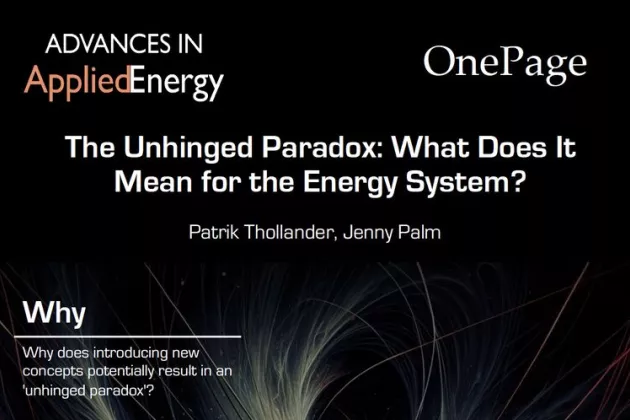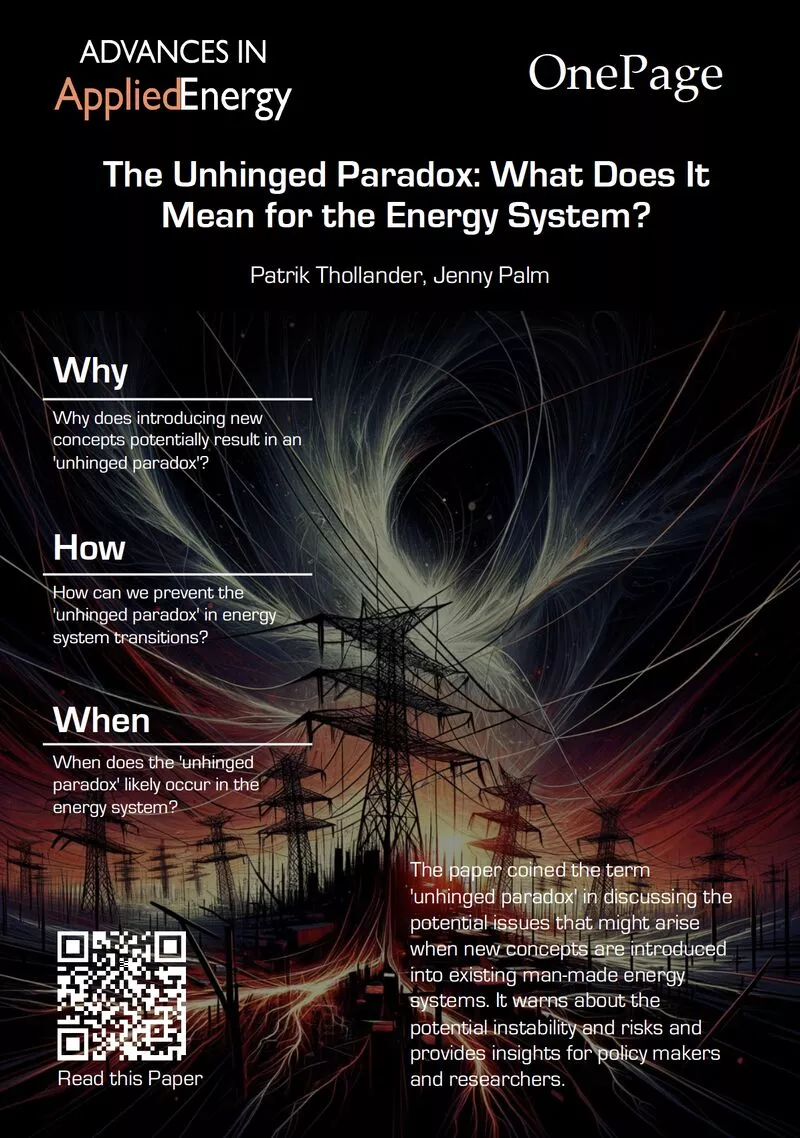An unhinged paradox implies that introducing a new concept, such as a new governance or management model, might lead to unintended consequences where some parts or the whole system become more unstable, or less resilient or unhinged. In man-made energy systems like the electricity system, new concepts have the potential to influence and shape the development of the system. Sometimes the influence leads to a positive development and in other cases the new concept may lead into disadvantageous pathways.
In this article the authors argue that when a new concept is introduced, it may give rise to an unhinged paradox. They see that an unhinged paradox can occur when not all three knowledge forms, episteme, techne and phronesis, are present and when a feedback loop takes time to establish or the feedback is ignored. To avoid unhinged paradoxes it is important to include various disciplines and knowledge areas before initiatingnew concepts. Similarly, it is crucial to evaluate the need for a new concept compared to if old, adjusted concepts are used. Overall, the authors call for an improved understanding of the occurrence of the unhingedparadox, and how to minimize its potential negative impacts.
Read the article here (open access)



